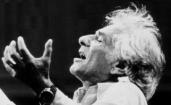We have a place to share what we learned in church, so we probably need a place to share what we taught or spoke on in church. So here we go...
I have the opportunity of teaching Elders Quorum every couple of months. I try to mix things up a bit to talk about Church related topics but with a different spin. I have talked about Mormonism in the Media (during the election), and Mormon Doctrine vs. Mormon culture. This week my focus was on a small section of the handbook of instruction:
"Parents have the primary responsibility for the sex education of their children."
I also quoted from the Church's A Parent's Guide about child development.
We have a very diverse group with never married older guys, divorced, recently married, married with young kids, married with teenagers, empty nesters, and young elders getting ready for missions.
I asked how many received the birds and bees talk when they were teenagers and less than half had. We then discussed why that was and how it can be embarrassing for the kids and parents to discuss it.
It got a bit heated when I quoted the teen pregnancy rate for Utah and then asked if it is ok to teach kids abstinence, abstinence, abstinence... but just in case here is a condom for your wallet? A couple older guys said no that the prophet has never taught that so we shouldn't either but a couple younger elders thought that it was a good idea to do that as some LDS kids are still having sex despite being taught differently and they need to protect against disease and pregnancy. I had to finally end all the comments because we ran out of time. I ended by stating no matter how you as a parent feel about the subject we should follow the Church's advice and be the ones to teach our children about it.
I had several people come talk to me afterwards about the subject. One older guy told me that he had to bite his tongue on a couple occasion to keep himself from laughing. He said that he grew up on a farm and his little sister was artificially inseminating cows at age 12 so he found it funny that city kids and their parents were so reluctant to talk about such things.
Lastly, since we hold our class in the chapel I would suspect that it was the first time that the words p_nis, v_gina, and chl_mydia were uttered there, but then again teenage boys prepare the sacrament so I am probably way off on that one.




 Reply With Quote
Reply With Quote




 But it was a fun discussion from a believer's point of view. (Hint: the Poelman talk didn't come up.)
But it was a fun discussion from a believer's point of view. (Hint: the Poelman talk didn't come up.)







